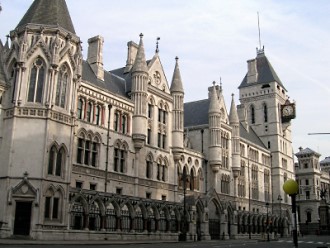Mr Justice Swift rules detainees in prisons are discriminated against compared to those in Immigration Removal Centres when accessing advice
The High Court ruled today that a lack of access to legal aid advice for immigration detainees held in prisons is unlawful.
 Image credit: WikipediaIn the judgment, Mr Justice Swift found that immigration detainees in prisons are less well placed to access legal advice than those held in Immigration Removal Centres (IRCs). While the latter have access to legal advice under the Detained Duty Advice Scheme (DDAS), the former do not.
Image credit: WikipediaIn the judgment, Mr Justice Swift found that immigration detainees in prisons are less well placed to access legal advice than those held in Immigration Removal Centres (IRCs). While the latter have access to legal advice under the Detained Duty Advice Scheme (DDAS), the former do not.
The Claimant argued that this amounts to unlawful discrimination contrary to the requirements of article 14 of the European Convention on Human Rights (ECHR).
Doughty Street Chambers noted that in allowing the claim, Mr Justice Swift rejected the Lord Chancellor's position that being an immigration detainee in prison was not a relevant status for the purposes of article 14 and that the difference in treatment was justified.
Mr Justice Swift concluded in his judgment: "I am minded to make a declaration to the effect that the failure to afford immigration detainees held in prison access to publicly-funded legal advice to an extent equivalent to that available to immigration detainees held in IRCs under the DDAS, is in breach of Convention rights."
Jeremy Bloom of Duncan Lewis, the Claimant's solicitor, said in a statement: "We are delighted with the outcome of this case for our client. We also hope that the judgment will lead to an improvement in the access that immigration detainees held in prisons have to legally aided immigration and asylum representation. The current arrangements are not fit for purpose; they obstruct access to legal aid for some of the most vulnerable individuals and prevent them from effectively challenging the lawfulness of their detention and from advancing their asylum and human rights claims. At present, many of these individuals find it almost impossible to secure legal aid representation."
Bail for Immigration Detainees (BID), who intervened in the case, said the judgment represents a significant breakthrough, but the fight would continue to stop the inhumane practice of detaining people for immigration reasons in prisons.
Pierre Makhlouf, Assistant Director for BID, said: "Immigration detainees in prisons often face deportation and permanent separation from their families, children and the communities where they have grown up, causing real suffering to many. Access to legal advice and representation in these circumstances is essential to assist people to put forward their claims to remain in the UK, and indeed so that they can apply for bail to be released from detention."
In response to the judgment, The Independent quoted a Ministry of Justice spokesperson as saying: "We have started a review of legal aid provision for immigration detainees, and will carefully consider the High Court's judgment."